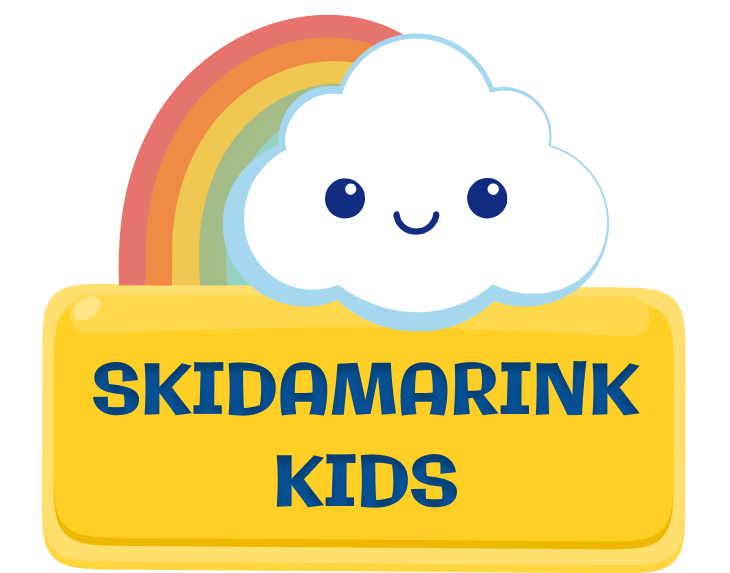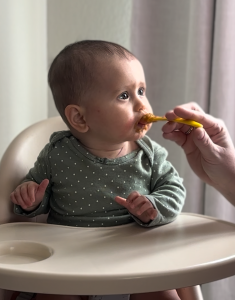As a first-time parent, watching your little one learn to eat can be both exciting and nerve-wracking. While every child develops at their own pace, there are times when professional guidance can help ensure your child’s feeding journey stays on track. Let’s explore when you might want to reach out for support.
The Early Days (6-12 months)
Your baby's first adventures with solid foods should be a time of discovery. However, consider seeking help if you notice:

* Your baby consistently gags or chokes when trying purées or soft foods, even after several attempts. For example, if your 8-month-old has difficulty swallowing smooth banana purée without coughing, this might indicate challenges with oral motor skills.
* They show extreme distress or crying during feeding times. While some fussiness is normal, if your 7-month-old becomes inconsolable every time they’re placed in their high chair, this could signal feeding anxiety.
* There’s persistent difficulty transitioning from liquids to purées. If your 9-month-old refuses anything thicker than breast milk or formula after multiple gentle attempts, professional guidance might help.
The Growing Explorer (12-24 months)
For infants, toddlers or kiddos who struggle with self-regulation and overstimulation by activating the “Brake Pedal” side of their brain tends to have a calming effect. Try these activities 2-3 times a day as needed.
* Limited food acceptance that affects nutritional variety. If your 15-month-old only accepts white or beige foods (like bread, pasta, and crackers) and becomes extremely upset with new textures or colors, this might indicate sensory processing concerns.
* Difficulty using age-appropriate utensils or cups. For instance, if your 18-month-old cannot attempt to use a spoon or sippy cup without significant frustration or spillage, occupational therapy could help develop these skills.
* Ongoing challenges with chewing or managing different textures. If your 20-month-old still primarily swallows food whole or pockets food in their cheeks regularly, this might suggest oral motor difficulties.

The Independent Eater (2-3 years)
By this age, children typically enjoy participating in family meals. Consider professional support if:

Explore Our Revolutionary Feature
* Your child shows extreme selectivity that limits their diet to fewer than 10-15 foods. For example, if your 2.5-year-old only eats chicken nuggets, apple sauce, and milk, refusing all other options, this could impact their nutrition and social eating experiences.
* They frequently cough or clear their throat during meals, even with appropriate food sizes and textures. This might indicate underlying swallowing difficulties that need assessment.
* Mealtimes consistently involve tears, tantrums, or anxiety that lasts more than 30 minutes. While some challenging behavior is normal, persistent distress around eating can affect both child and family wellbeing.
Signs That Warrant Immediate Attention
Some situations need prompt professional evaluation:
* Noticeable weight loss or failure to gain weight appropriately
* Frequent vomiting or gagging during or after meals
* Signs of pain or significant discomfort while eating
* Recurring respiratory infections that might be related to feeding
* Regular food refusal leading to decreased intake over several days
Finding Support
Remember, seeking help isn't a sign of failure – it's a sign of caring deeply about your child's wellbeing. Consider reaching out to:
* Your child’s pediatrician for initial guidance and referrals
* Pediatric feeding specialists or occupational therapists
* Speech-language pathologists who specialize in feeding
* Registered dietitians with pediatric expertise
These professionals can provide personalized strategies, exercises, and support tailored to your child’s specific needs. Many parents find that early intervention helps prevent more significant challenges later and makes mealtimes more enjoyable for everyone.
A Note of Encouragement
Every child’s feeding journey is unique, and challenges along the way don’t reflect on your parenting. What matters most is recognizing when additional support might help and taking steps to get it. You’re doing a great job by staying attuned to your child’s needs and seeking information to support their development.
Trust your parental instincts – if something doesn’t feel right about your child’s feeding development, it’s perfectly okay to ask for professional guidance. Remember, you’re not alone in this journey, and help is available to support both you and your little one in creating positive, healthy feeding experiences.
– Ali





